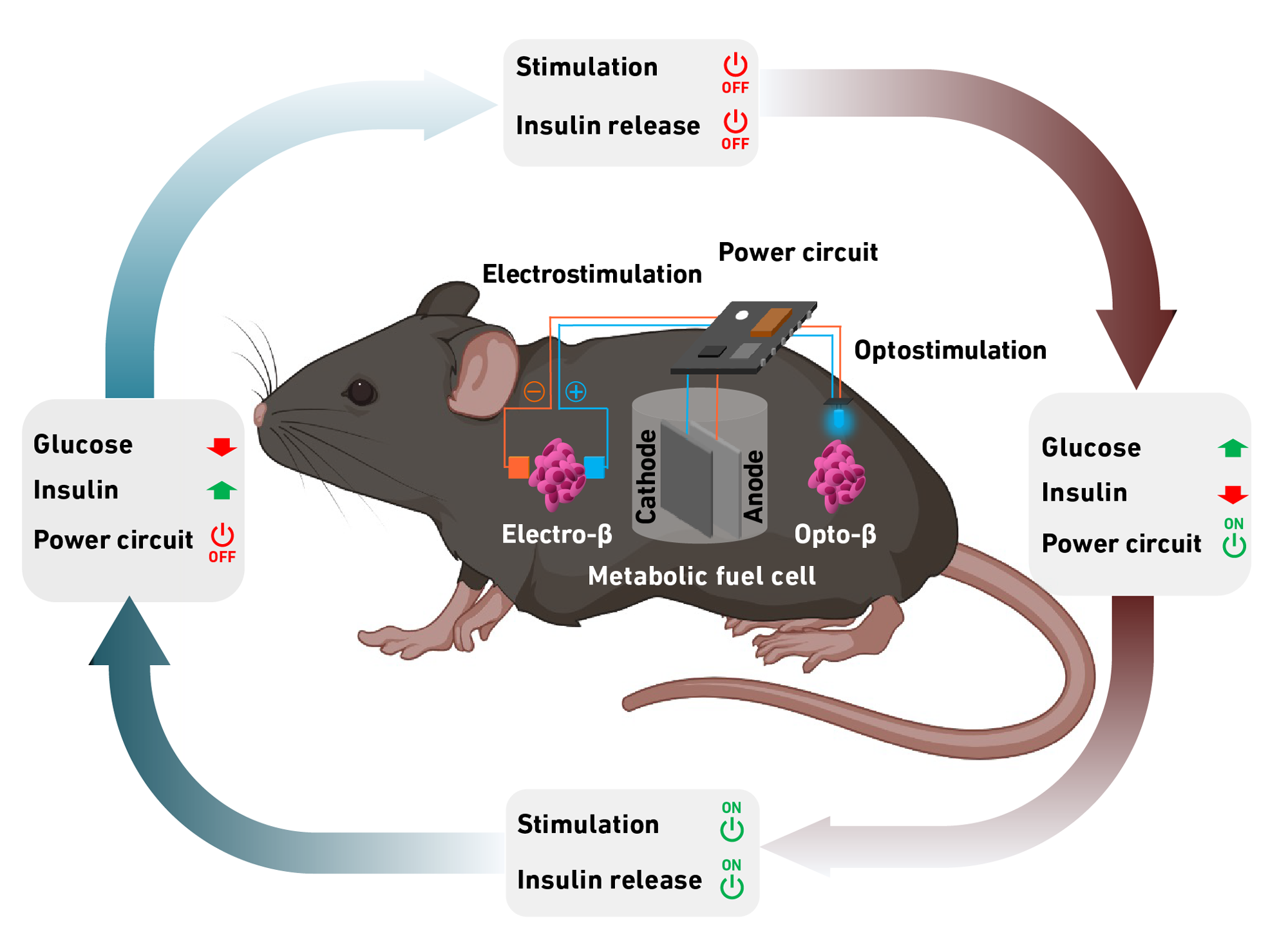Sugar-powered teabag-like implant successfully manages type 1 diabetes
Date: 29.3.2023
Glucose fuel cells that can effectively harness the body’s chemical energy and turn it into an electrical charge has been a long-term holy grail for scientists since such potential was first studied back in 1968. But these biotech batteries have been challenged by an array of biocompatibility issues for almost as long.
 Now, a team of researchers out of ETH Zurich have developed a novel fuel cell implant for the management of type 1 diabetes. What’s more, it connects to artificial beta cells designed by the same team in 2016 that can successfully produce and release insulin when triggered.
Now, a team of researchers out of ETH Zurich have developed a novel fuel cell implant for the management of type 1 diabetes. What’s more, it connects to artificial beta cells designed by the same team in 2016 that can successfully produce and release insulin when triggered.
"The new system autonomously regulates insulin and glucose levels and could be used to treat diabetes in the future," Martin Fussenegger from the Department of Biosystems Science and Engineering at ETH Zurich.
In type 1 diabetes, the body can’t produce enough insulin, so an external supply must intervene. Current insulin pumps and monitors also rely on external power supplies such as single-use batteries.
The fuel cell itself, which resembles a teabag that’s slightly larger than a fingernail, is covered in a nonwoven fabric and coated with alginate, an algae-derived product used widely in biomedicine because of its high degree of biocompatibility.
When implanted under the skin, the cell’s alginate soaks up body fluid, allowing glucose to permeate the surface and flow into the power center. Inside the cell, the team developed a copper-based nanoparticle anode that splits glucose into gluconic acid and a proton to generate an electric current.
Image source: Maity et al. (2023), Advanced Materials / ETH Zurich.























